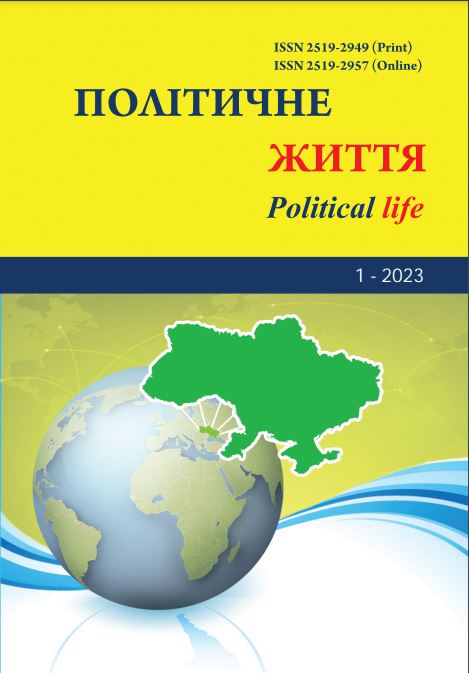Constructive resolution of conflicts: forms, strategies and methods of solution
DOI:
https://doi.org/10.31558/2519-2949.2023.1.2Keywords:
conflict resolution; conflict settlement; conflict extinction; elimination of conflict; conflict resolution strategyAbstract
In the article, the author made an attempt to conceptualize the main forms of ending the conflict, among which the main ones are highlighted: resolution, settlement, extinction, elimination, development into another conflict. The author determined that the resolution of the conflict is a joint activity of its participants, aimed at stopping opposition and solving the problem that led to the conflict. The option of ending the conflict is considered by the author of the article as a result of the struggle from the point of view of the state of the parties and their relationship to the object of the conflict. It was established that the criterion for constructive resolution of the conflict is the level of resolution of the contradiction underlying the conflict and the victory of the right-wing opponent in it. The author emphasizes that most of the conditions and factors for successful resolution of conflicts are psychological in nature because they reflect the peculiarities of the behavior and interaction of opponents. It has been proven that conflict resolution is a multi-stage process that includes analysis and assessment of the situation, choosing a way to resolve the conflict, forming an action plan, its implementation, and evaluating the effectiveness of one’s actions.
The author notes that the opponent’s choice of a strategy for exiting the conflict is of fundamental importance for how the conflict will end. Ending a conflict does not always resolve the underlying contradiction. An open conversation technique may be recommended to reach a compromise. The author established that the direct resolution of the conflict is a process that includes the analysis and assessment of the situation, the choice of a way to resolve the conflict, the formation of an operational composition of actions, the implementation of the plan and (or) its correction, and the evaluation of the effectiveness of actions. The main strategies for conflict resolution are rivalry, cooperation, compromise, adaptation, and withdrawal from solving the problem.
References
Charles E. Osgood, Psycholinguistics, Cross-Cultural Universals, and Prospects for Mankind. Praeger Publishers, 1988. 402 р.
Coser A. Lewis. Conflict and Consensus. London: Free Pr, 1984. 436 p.
Deutsch Morton. The Handbook of Conflict Resolution: Theory and Practice. (2nd ed.). San Francisco, CA: Jossey-Bass, 2006. 1264 p.
Follett, M. P. The New State: Group Organization the Solution of Popular Government. University Park, PA: The Pennsylvania State University Press, 1998.
Metcalf H. C., L. Urwick. Dynamic Administration. The Collected Papers of Mary Parker Follett. Copyright, 2003. 322 р.
Thomas, Kenneth W.; Kilmann, Ralph H. "Comparison of Four Instruments Measuring Conflict Behavior". Psychological Reports. 42 (3 suppl), 1978. P. 1139–1145.
Гірник А.М. Основи конфліктології. Київ : ВГІ НАОУ, 2001. 225 с.
Конфліктологія.: Навчальний посібник. Національний університет «Юридична академія України імені Ярослава Мудрого». Харків, 2012. 65 с.
Примуш М.В., Клюжев О.В. Політична Конфліктологія: теорія і практика: навч. посіб. Донецьк, 2011. 144 с.

